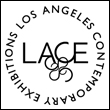« Features
Kettle’s Whistle: Based on a True Story
With the sole exception of Spike Jonze’s Her and Alfonso Cuarón’s Gravity, seven out of nine films in the running for Best Picture at the 86th Academy Awards in March 2013 were “based on a true story.” Whilst this event reinforced the perception of a film industry unable to create original material and increasingly reliant on prequels, sequels and memoir adaptations, the critics and public should think twice before pointing fingers, as a good part of the blame for this lack of creativity might as well lay in their own yard.
In their book I Want My MTV: The Uncensored Story of the Music Video Revolution, Craig Marks and Rob Tannebaum chronicle how a station broadcasting music videos 24/7 transitioned into the ultimate Reality Show channel. The authors interviewed more than 400 people who played a key role in the ascendance of the network, but whereas the early fans of MTV think it has a lot to answer for, the current generation of directors and executives argue quite convincingly about the importance of being modern and changing with time. From their perspective, MTV is still very much a network for and about youth culture, reiterating the notion that entertainment is a science largely based on audiences’ expectations, with the growing appetite for “real stories” a deciding factor in the proliferation of reality-based experiences over the past decade.
The very definition of “reality,” of course, warrants scrutiny, especially when compared to the early experiments in the field. Mondo Movies are a thing of the past, but the mentality of their makers is still alive and well. What is different is the quality of the material at their disposal. Far from being the victims of manipulation, the protagonists of today’s reality shows, who embrace one of the zillion opportunities offered by contemporary life to pose in front of a camera, have become consummate manipulators themselves. This has given producers a chance to cop fresh talent for pennies and move away from the more expensive celebrity reality series-a format consisting primarily of a Faustian pact in which Hollywood B-listers and 15-minute famers are given back a glimpse of notoriety in return for a professional performance, and where the words “celebrity” and “reality” are deployed in even looser associative forms. More importantly, the presence of ordinary people made the credibility card even stronger, enabling the viewer to more easily identify with the characters.
Battered by years of poor business, it’s easy to see how the music industry had few scruples playing by these new rules and incorporating a bunch of kids doing a karaoke routine to a Queen song into its regular roster of stars and musicians, the only casualty being the ego of the latter. The film industry, however, was a different matter. Having established the impossibility of competing with reality TV and the Internet on the same terms by devoting 100 percent of its resources to the production of documentaries (although these have significantly augmented in number and relevance), the “based on a true story” formula has slowly emerged as nothing short of a lifesaver. In its promoters’ view, it has the superlative merit of dressing the most implausible concepts in a narrative that appeals even to the most sober elements of the audience, securing their deeper emotional involvement and being totally non-accountable for what is said at the same time. With years of discreet “everything resembling true facts or people is to be considered a coincidence” rolling as proof that the method is not employed for cautionary purposes, the most sinister sociologist could conclude that “based on a true story” is founded on the same principles that fuel propaganda.
On the brighter end of the spectrum, this walking the fine line between reality and fiction amusingly vindicates the army of geeks and fantasists who live for discussing their favorite films as if they were true - the hardcore Star Wars fans and Trekkies who get excited at the thought that Harrison Ford can actually pilot a space vehicle and that James Doohan has an engineering background. These are both extreme examples, but the fact remains that marketing a film within the “based on a true story” framework is as clever as it is facile. The minute the exception becomes the norm, the very same plausibility originally sought by the idea is in danger. The numerous examples of memoirs that have turned out to be quite fictional and novels that have turned out to be quite true are evidence that success doesn’t lay in prefixes, but in compelling storytelling. Platoon was based on Oliver Stone’s time in the Army; Full Metal Jacket was based on Gustav Hasford’s novel The Short-Timers. What both films had in common was their desire to counteract the artificial depiction of the Vietnam War portrayed by John Wayne in The Green Berets. And this is what eventually made them true.
Michele Robecchi is a writer and curator based in London. A former managing editor of Flash Art from 2001 to 2004 and senior editor at Contemporary Magazine from 2005 to 2007, he is currently a visiting lecturer at Christie’s Education and an editor at Phaidon, where he has edited monographs about Marina Abramović, Francis Alÿs, Jorge Pardo, Stephen Shore and Ai Weiwei.




































Leave a Reply
You must be logged in to post a comment.